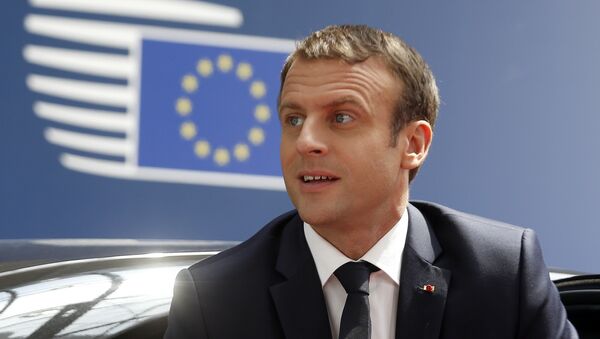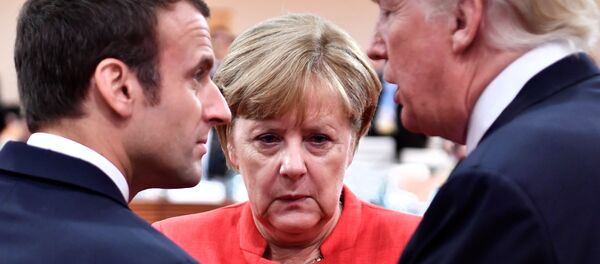Sputnik: Why, in your view, did Britain decide to join the initiative put forward by France? What does it stand to gain from it?
Dick Zandee: All of this of course has to do with Brexit, the fact that the UK is leaving the European Union because joining this French initiative, which is not an EU initiative, not a NATO initiative, but purely a French national initiative inviting all the countries, opens the door of course for the United Kingdom to be aligned with France. So, it’s coming in through sort of a backdoor, while the formal door at the front is closed for the Brits.
Sputnik: How will this sort of initiative be affected by Brexit?
Dick Zandee: It will be extremely difficult of course for the Brits to join anything that goes on under the EU umbrella, because that will need special agreements, to start with a security agreement with the EU to be able to profit, for example, from the $17 billion you mentioned in the 2020s, join those projects to buy a new kit, or develop technologies or whatever.
If it will be possible, it all depends on the agreement that will be struck between the United Kingdom and the European Union later on.
Sputnik: What does France see as a possible motive for putting this kind of proposal on the table at this period of time?
Dick Zandee: The French primary security concern is of course security in the Mediterranean area and all the instability that we are seeing in northern Africa, the whole area of the Sahel. <…>
READ MORE: French Gov't Faces Legal Action Over Arms Exports to Saudi Arabia, UAE
That is the major security concern for countries like Italy and France, which are bordering the Mediterranean. So, the traditional agenda of the French is to seek as many European allies they can find to join them, to intervene if necessary, as they did in Mali a couple of years ago, in Nigeria, or to support peace-keeping operations, which the UN is running in several of these countries. Some of the European countries are ready to do that; we have mentioned already a few of them. Having the Brits doing that as well of course helps a lot, because they have tremendous expeditionary capability.
Sputnik: The EU already has four multinational military groups formed since 2007, but they haven’t been deployed. What are your thoughts behind that?
Dick Zandee: They haven’t been deployed because any deployment under the formal EU umbrella, or flag, demands a unanimous decision by the council. That means, by now, 28 EU members have to agree on such an operation, the same to a certain extent applies to NATO: it needs a unanimous decision by all member states to deploy it, and that makes it extremely difficult.


